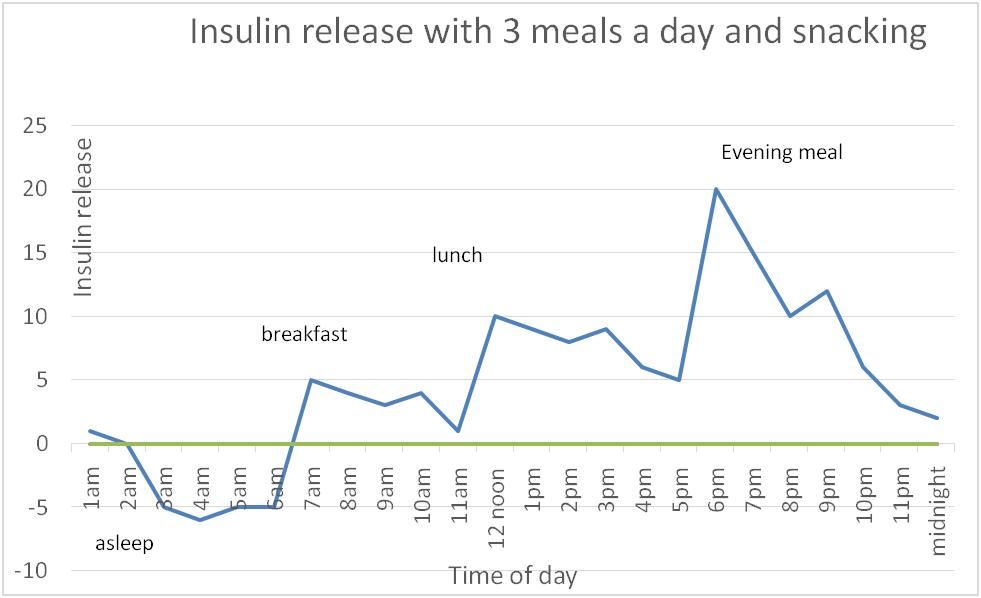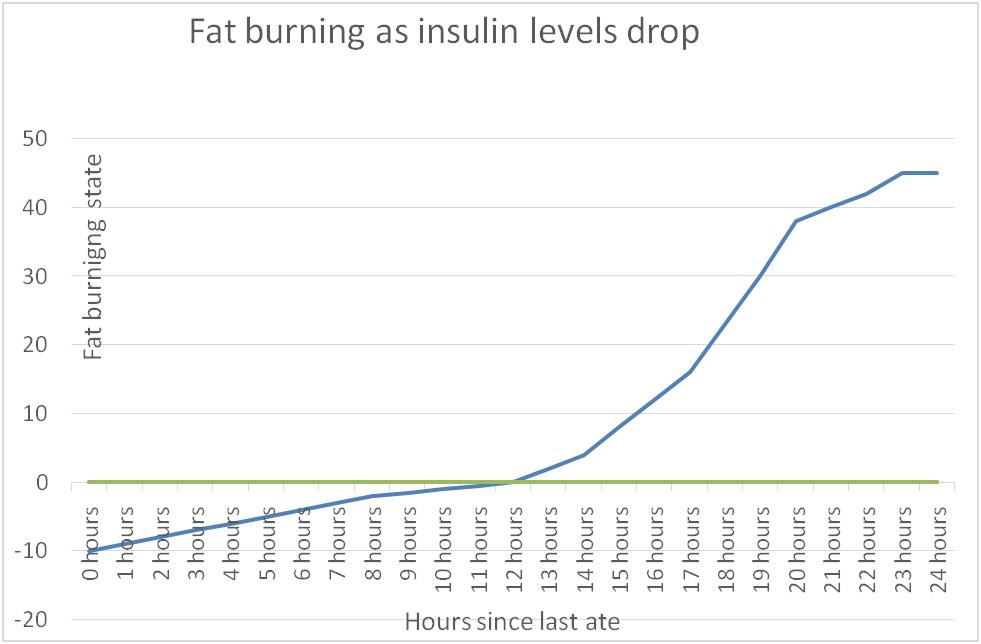Fasting
Sometimes, when we eat and giving a body a break from eating can be as powerful as what we eat.
The best of all medicines is resting and fasting – Benjamin Franklin
Fasting is the greatest remedy, the physician within – Paracelsus
Fasting is an ancient practice embraced around the world. Intermittent fasting or time restricted eating is a very effective way to reduce insulin resistance and lose weight. The health benefits however go beyond weight loss.
Our bodies are not designed to cope with the constant eating that we see in modern diets. Our ancestors would not have had 3 meals a day plus snacks. They would have eaten once or twice a day. Sometimes they would have periods where there was no food and they would have fasted between food being available.

There is a lot of fear around not eating, however the human body is designed to efficiently use up fat stores and release energy. Most people are sugar burners, feeding the blood stream with carbohydrates with constant meals and this is used as the primary fuel source.
Once we reduce carbohydrates and allow some resting between meals, we become fat adapted and use our fat stores. Humans are designed to store fat to ensure we have energy during lean periods of food supply. The problem is with current diets there are no lean periods!
To efficiently fast it is important to keep hydrated and add salt if needed. Any foods that cause a spike in Insulin will ‘break the fast’ and reduce fat burning efficacy,
We recommend only having water (still or sparkling but not flavoured) black, green or white tea, redbush tea or black coffee. For longer fasts some patients drink bone broth.
Fasting can take the form of 5.2 where you restrict calories to 500-600 calories a day twice a week, ideally eaten in one meal. Some patients increase this to 3 days a week, doing alternate day fasting.
Or you can do daily fasting where you eat in an 8-hour window (16:8) ,6-hour window, (18;6) or 4-hour window (20:4). Some people will only eat one meal a day over an hour (effectively doing a 23 hour fast. The beauty of this type of fasting is that you can be flexible depending on your day and needs. You can maximise the fasting time we naturally get when we sleep by missing breakfast or even delaying breaking your overnight fast. Simply by skipping breakfast and breaking your overnight fast with lunch, you can easily fast for 16 hours.

To start to burn fat a minimum 12 hours of fasting is needed.
Fasting should be something that comes naturally. Most patients who reduce their sugar and carbohydrates, find they are naturally not hungry and fall into a fasting pattern.
There is a fear around fasting that this is disordered eating and dangerous. This practice has been around for centuries and is safe for the majority. If you have a history of an eating disorder, you should not fast and follow-up with the Eating Disorders Team. Pregnant and breastfeeding women should also avoid fasting. There is some evidence that patients with Hypothyroidism and patients who are physically or mentally exhausted may struggle with intermittent fasting. If you are on any medication this may need to be altered, either in dose or timing, so again please speak to us first.
https://chriskresser.com/could-you-benefit-from-intermittent-fasting/
https://chriskresser.com/intermittent-fasting-the-science-behind-the-trend/
Fasting benefits are not limited to weight loss. By allowing the body to divert its energy from digesting food it can concentrate on cell renewal and repair – a process known as Autophagy. Fasting helps to reduce risk of dementia, cancer, diabetes and heart disease. It also delivers increased energy and mental alertness.
Fasting Resources
To learn more, watch the following
Dr Jason Fung is a great advocate for fasting and you may be interested in his book.
https://www.amazon.co.uk/Complete-Guide-Fasting-Jason-Fung/dp/1628600012
Page created: 30 March 2021